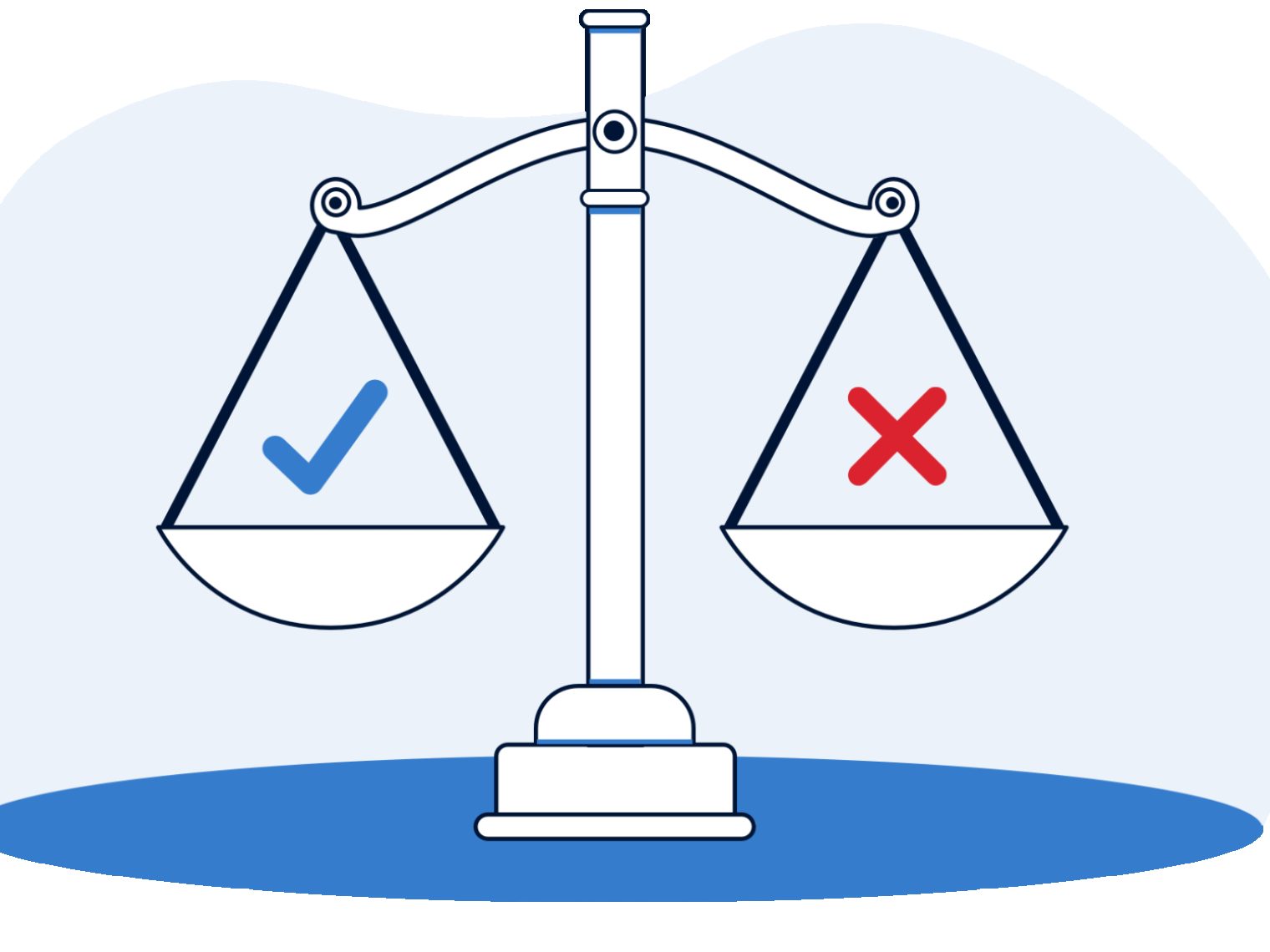- Veterans can restore their VA entitlement in multiple ways to reuse the home loan benefit.
- One-time restoration lets you keep a VA-purchased home but can only be used once.
Qualified homebuyers with their full VA entitlement can buy a home with no down payment, regardless of how much they’re borrowing. But Veterans who have used a VA home loan before may have some or no entitlement remaining when the time comes for them to seek another VA purchase.
That’s when restoration of entitlement comes into play.
What is a VA Restoration of Entitlement?
A VA restoration of entitlement allows Veterans who have previously used their VA loan benefit to take out a new VA loan with 0% down and no loan limit.
Why VA Entitlement Matters
Your VA loan entitlement allows you to get a $0 down payment on a VA mortgage with no cap on the loan's size. It reflects how much the Department of Veterans Affairs is willing to guarantee your loan, typically up to 25% of the loan amount. The VA guaranty reduces risk for lenders and allows them to offer more favorable terms.
Having “full entitlement” means you’re eligible for the full guaranty with no VA loan limit. In most cases, Veterans can access their full entitlement if they’ve:
- Never used the VA loan before
- Used a VA loan in the past and paid it off in full
If you currently have a VA loan, you will have “reduced” or “partial” entitlement, which can affect your 0% down buying power and even your ability to get another VA loan. Most lenders financing the VA loan require 25% of the loan amount upfront through entitlement, a down payment or a combination of the two.
How to Restore VA Entitlement
There are three basic ways Veterans can restore previously used VA entitlement:
- Sell the original property and repay their VA loan in full
- Allow a qualified Veteran to assume the VA loan with a Substitution of Entitlement
- Refinance the existing VA loan into a non-VA product and invoke what's known as the "one-time restoration of entitlement”
It's important to know that restoration of entitlement isn't automatic. Once you’ve taken action to restore your entitlement, you must then notify the VA by completing VA Form 26-1880, focusing on Section III - Information Regarding Previous VA Loans. The VA will then update your Certificate of Eligibility to reflect your reinstated entitlement.
An approved VA lender, like Veterans United, can help you with this process and make sure everything is submitted correctly.
Keep in mind, you don’t necessarily need to restore VA entitlement to buy again. Some buyers may rely solely on their second-tier entitlement, depending on how much is left.
Selling to Restore VA Loan Entitlement
Selling the original property and fully paying off your VA loan is often the easiest route to entitlement restoration.
This process involves two essential steps:
- Sell the home and transfer ownership
- Make enough profit from the home sale to pay your VA lender in full
Once the loan is repaid and the title is transferred, your VA entitlement can be restored. This matters because VA loans are meant for primary residences, not rentals or investment properties. Even if you’ve paid off the loan but still own the home, your entitlement may remain tied up.
How to Restore VA Entitlement After Foreclosure or Short Sale
First, it’s important to understand that short sales and foreclosures are not the same thing. A short sale is when a borrower gets permission from their lender to sell their home for less than they owe, while a foreclosure is when a lender repossesses a house after a borrower fails to make their monthly payments.
With a VA loan, both short sale and foreclosure result in a loss of whatever entitlement you used to acquire the property. There is also typically a two-year waiting period before lenders will approve you for a new VA loan.
Unfortunately, the only way to regain your entitlement after a short sale or foreclosure is to repay that lost entitlement to the VA in full. Some buyers will likely be better served putting that money into a down payment than repaying an entitlement charge. An experienced VA lender can help Veterans in these situations evaluate their entitlement situation and their financing options.
Restoring Entitlement Through VA Loan Assumption
In some cases, another eligible Veteran can assume your existing VA loan. If they meet VA and lender requirements, they can take over the loan terms and continue making payments.
To fully restore your VA entitlement through assumption, the new borrower must:
- Be an eligible Veteran with entitlement and meet your lender’s criteria
- Complete VA Form 26-8106 (Substitution of Entitlement), along with Forms 26-6807 and 26-6382
For VA loan assumptions, the only way to safeguard your entitlement is to have a Veteran assume your loan and substitute their entitlement for yours. Civilian buyers can assume a VA loan but can't substitute entitlement, so restoration isn’t possible.
If this formal substitution doesn't happen, your entitlement will remain tied to the loan, even if someone else is making the payments. You won't be able to fully restore your entitlement until the loan is paid off in full or refinanced into a non-VA loan.
Refinancing to Restore VA Entitlement
Homeowners with VA loans can choose to refinance into a non-VA loan product (conventional, FHA or USDA). Refinancing creates a brand-new loan, which means the current loan gets repaid in full. But refinancing by itself doesn’t allow Veterans to restore their entitlement without a special, one-time exception.
The reason is that VA loan entitlement isn’t just tied to the Veteran; it’s also tied to the property the Veteran purchases. Unlike a home sale, you aren’t getting rid of a home with a refinance, and that makes all the difference.
VA loans come with occupancy requirements, meaning they’re intended for your primary residence. If you refinance into a non-VA loan and keep the home, you can restore entitlement just once under this exception.
One-Time Restoration of VA Entitlement
A one-time restoration of entitlement allows borrowers to get a VA loan for a new home without selling their current one.
This one-time exception to the “must-sell” mandate makes it possible to buy a home that eventually becomes a vacation home or a rental property and then turn around and restore your full VA loan entitlement for another purchase.
Without the one-time VA restoration of entitlement, you’d either have to get rid of the property or rely on your remaining entitlement to get a new VA loan. But there are a couple of big caveats with one-time restoration.
Here’s what you should keep in mind:
- You can only seek one-time restoration if you’ve fully paid off the original VA loan
- You must either live in the home until you repay the entire mortgage (often 15 or 30 years) or refinance the VA loan into another loan type
- Once you use the one-time restoration, if you want to restore your VA loan entitlement again in the future, the VA requires borrowers to get rid of all properties obtained with a VA loan
Once you obtain the one-time restoration, your Certificate of Eligibility will always have a notation about it. That means you’d have to sell any and all future homes you’ve purchased using the benefit.
How Many Times Can You Restore VA Entitlement?
Veterans can restore and reuse their VA loan entitlement an unlimited number of times since this is a lifetime benefit. However, if you plan to keep your home and restore your entitlement without selling, you can only do that once using the one-time restoration option. After that, future restorations generally require you to sell the property and pay off the VA loan in full.
How Long Does it Take to Restore VA Loan Entitlement?
Restoring your VA entitlement can be fast, especially if your lender is experienced with the process. In some cases, Veterans can sell a home, restore entitlement and purchase a new home in the same day.
However, factors like paperwork, loan payoff confirmation and VA processing can affect the timeline. Every Veteran homeowner’s situation is different, and your lender can give you a more accurate estimate.
When is VA Loan Entitlement Not Restored?
You may have trouble restoring your VA entitlement if:
- There were changes to your service eligibility, such as a dishonorable discharge
- You want to keep your current home and use a VA loan to buy another, but already used your full entitlement
- You allowed someone to assume your VA loan without substituting their entitlement for yours
- If you defaulted on a previous VA loan and have not repaid it
Each case is different, so it’s important to talk to a VA-approved lender who can review your service record, entitlement history and financial situation to guide you forward. Discuss your VA entitlement with a Veterans United VA loan expert at 855-870-8845 or get started online today.
How We Maintain Content Accuracy
Our mortgage experts continuously track industry trends, regulatory changes, and market conditions to keep our information accurate and relevant. We update our articles whenever new insights or updates become available to help you make informed homebuying and selling decisions.
Current Version
Aug 21, 2025
Written ByChris Birk
Reviewed ByDon Wilson
Minor content updates to improve clarity and context. Article reviewed and fact checked by underwriter Don Wilson.
Related Posts
-
 VA Renovation Loans for Home ImprovementVA rehab and renovation loans are the VA's answer to an aging housing market in the United States. Here we dive into this unique loan type and the potential downsides accompanying them.
VA Renovation Loans for Home ImprovementVA rehab and renovation loans are the VA's answer to an aging housing market in the United States. Here we dive into this unique loan type and the potential downsides accompanying them. -
 Pros and Cons of VA LoansAs with any mortgage option, VA loans have pros and cons that you should be aware of before making a final decision. So let's take a closer look.
Pros and Cons of VA LoansAs with any mortgage option, VA loans have pros and cons that you should be aware of before making a final decision. So let's take a closer look.

